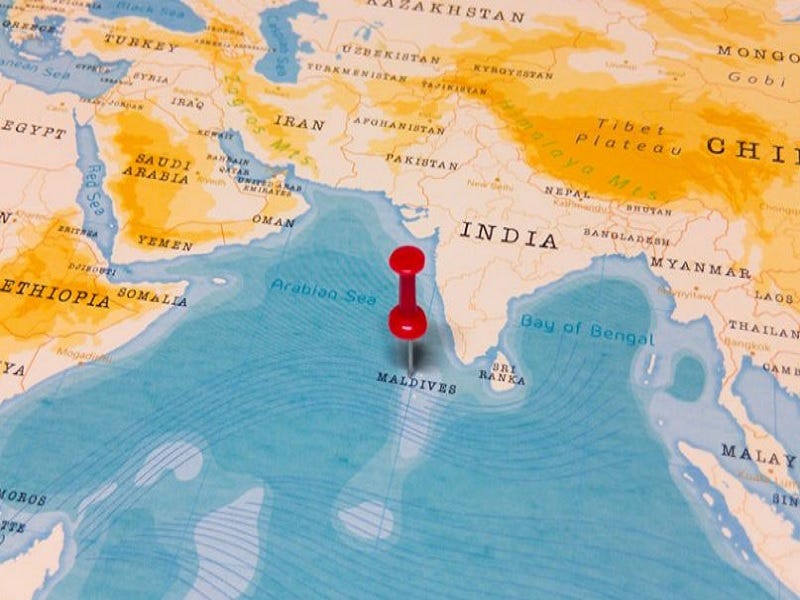It’s now known that he was employing demagogic campaign rhetoric about this issue aimed at democratically ousting his predecessor during the latest elections by tapping into the Maldives’ anti-Indian vote bank to that end.
Newly elected Maldivian President Mohamed Muizzu carried through with his campaign promise to formally request the removal of all Indian forces from his country, but the facts that he disclosed about their presence there proves that it was never anywhere as scandalous as he himself made it seem. According to the statement published on his presidential office’s website, there are only 77 of them, and they’re all engaged in either training or maintenance of just several aircraft.
Indian media reported that this deployment was agreed to by his predecessor as part of a joint mission for protecting the Maldives’ Exclusive Economic Zone (EEZ), which also included a domestic training component. That being the case, and even Muizzu’s office acknowledged “the discovery of over 100 bilateral agreements within the past five years” in his statement on the matter, this is a far cry from what he himself had earlier misrepresented this deployment as being.
Although his statement also promised that “the administration would annul any decisions undermining the nation's sovereignty made by previous administrations”, it’s objectively the case that bilateral agreements between UN-recognized governments don’t violate either’s sovereignty. It’s now known that he was employing demagogic campaign rhetoric about this issue aimed at democratically ousting his predecessor during the latest elections by tapping into the Maldives’ anti-Indian vote bank to that end.
He clearly succeeded, but in order to maintain support from his base, he had to disclose these “politically inconvenient” facts that undercut his own innuendo about the Maldives’ sovereignty supposedly being violated by India otherwise he couldn’t formally request those troops’ removal. The cat’s now out of the bag and everyone can see for themselves that he was manipulating some of the population’s perceptions about India in order to win the presidency.
In spite of this, “India Shouldn’t Have Much Difficulty Managing Relations With The Maldives’ New Government” since Muizzu doesn’t have any practical alternative to pragmatic relations with his country’s much larger neighbor as explained in the preceding hyperlinked analysis. Unnamed official Indian sources told their media that “workable solutions” are being explored to ensure the continuance of mutually beneficial military-security and other forms of cooperation.
It's premature to speculate what forms this could take, but it’s unlikely that the Maldives’ new leader will scale back trade and other ties with India since doing so would adversely affect his country’s national interests, thus risking a reduction in popular support and therefore leading to resentment against him. Rather, it’s much more likely that some sort of pragmatic compromise will be reached between his demagogic campaign rhetoric and geopolitical realities, which would keep relations cordial and stable.




